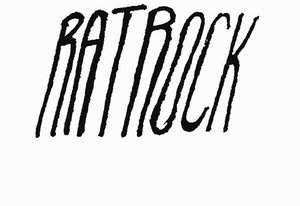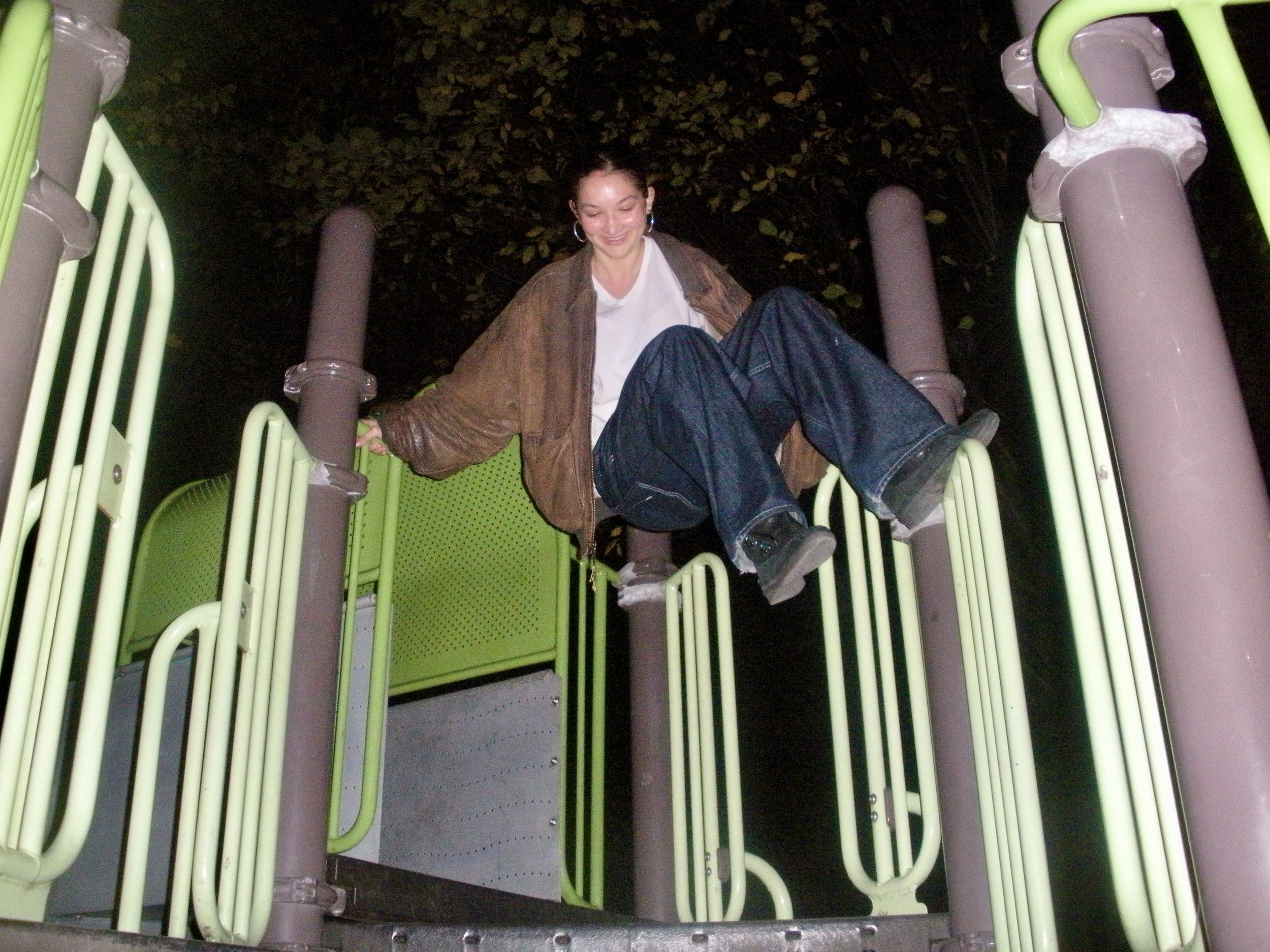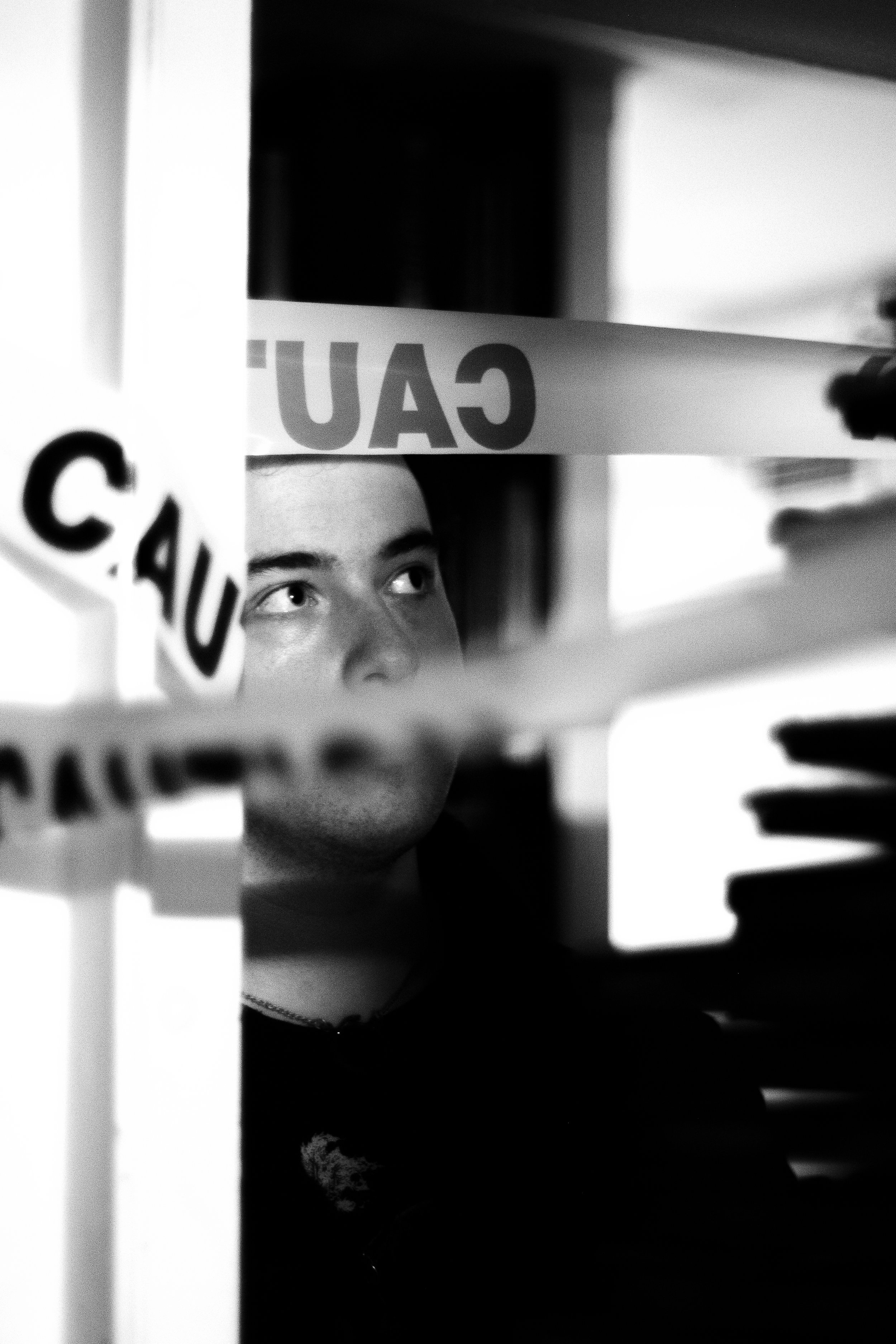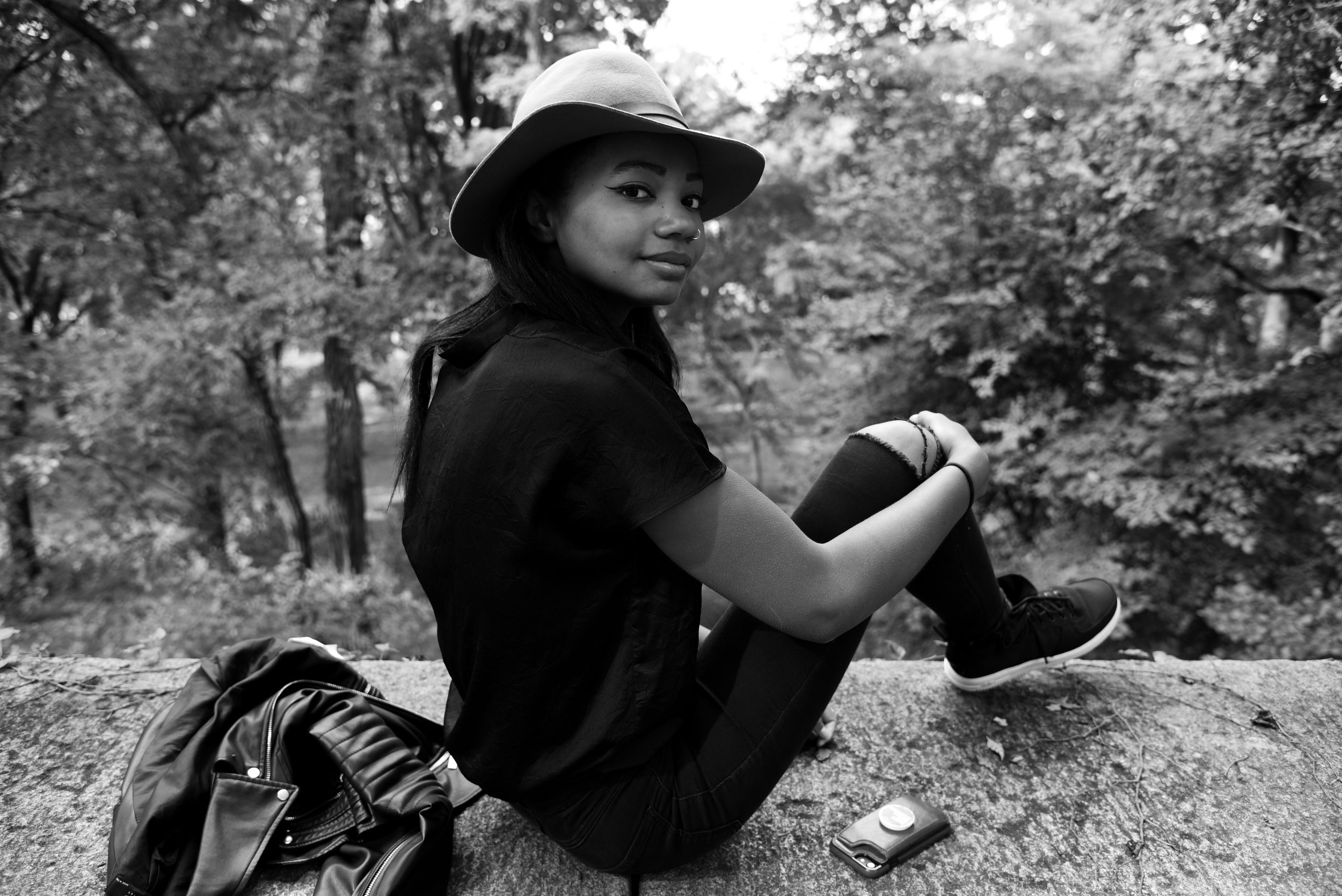
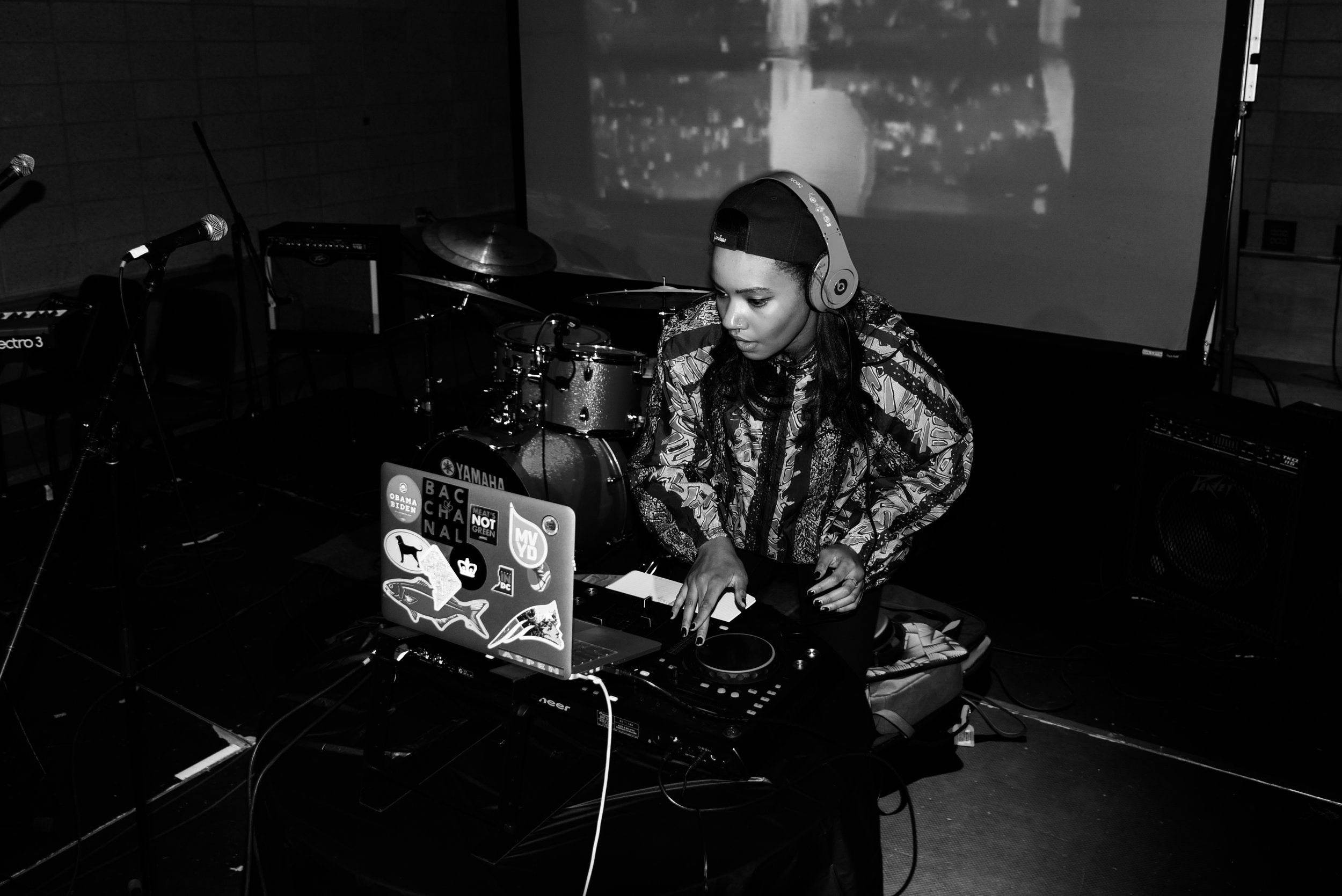
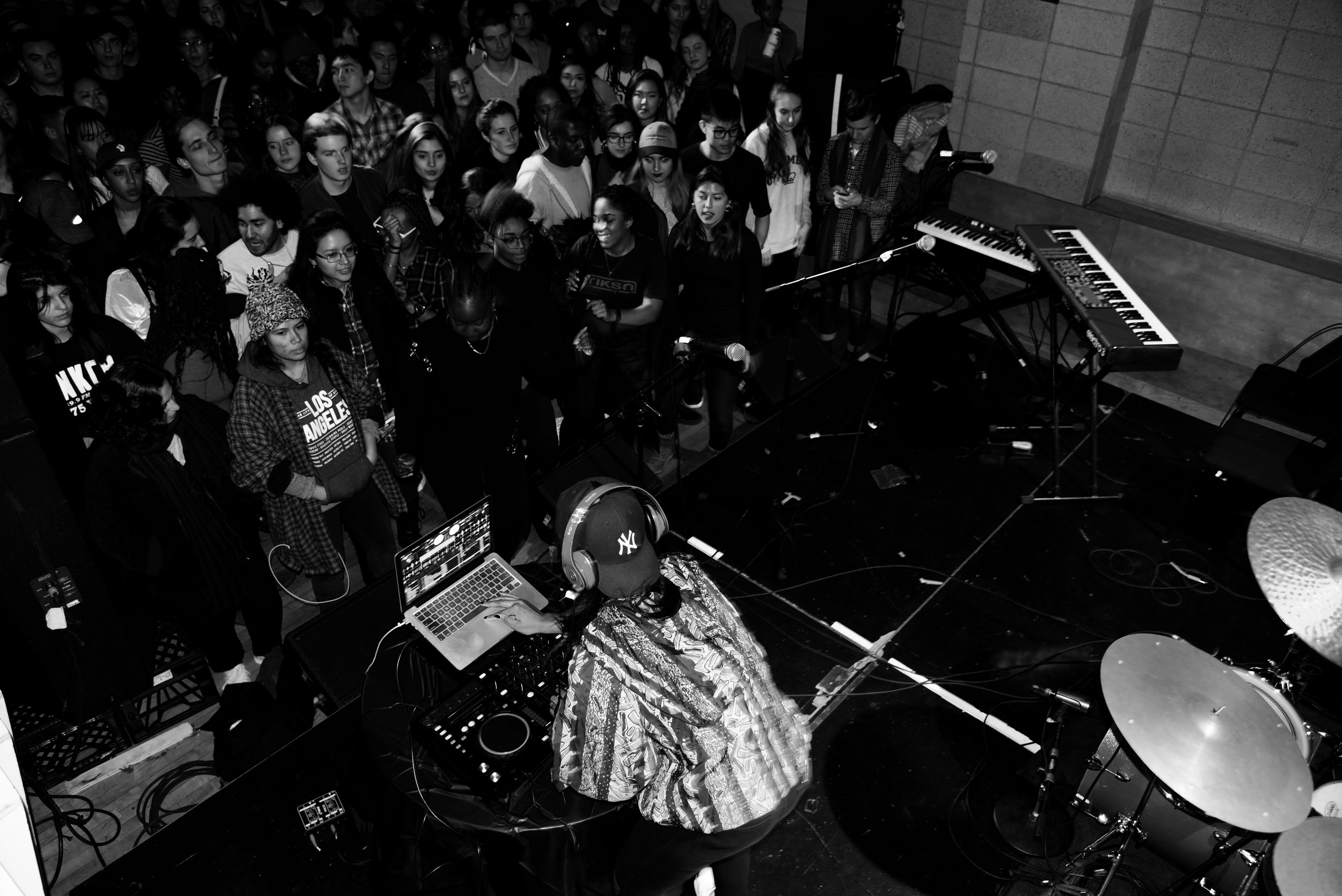

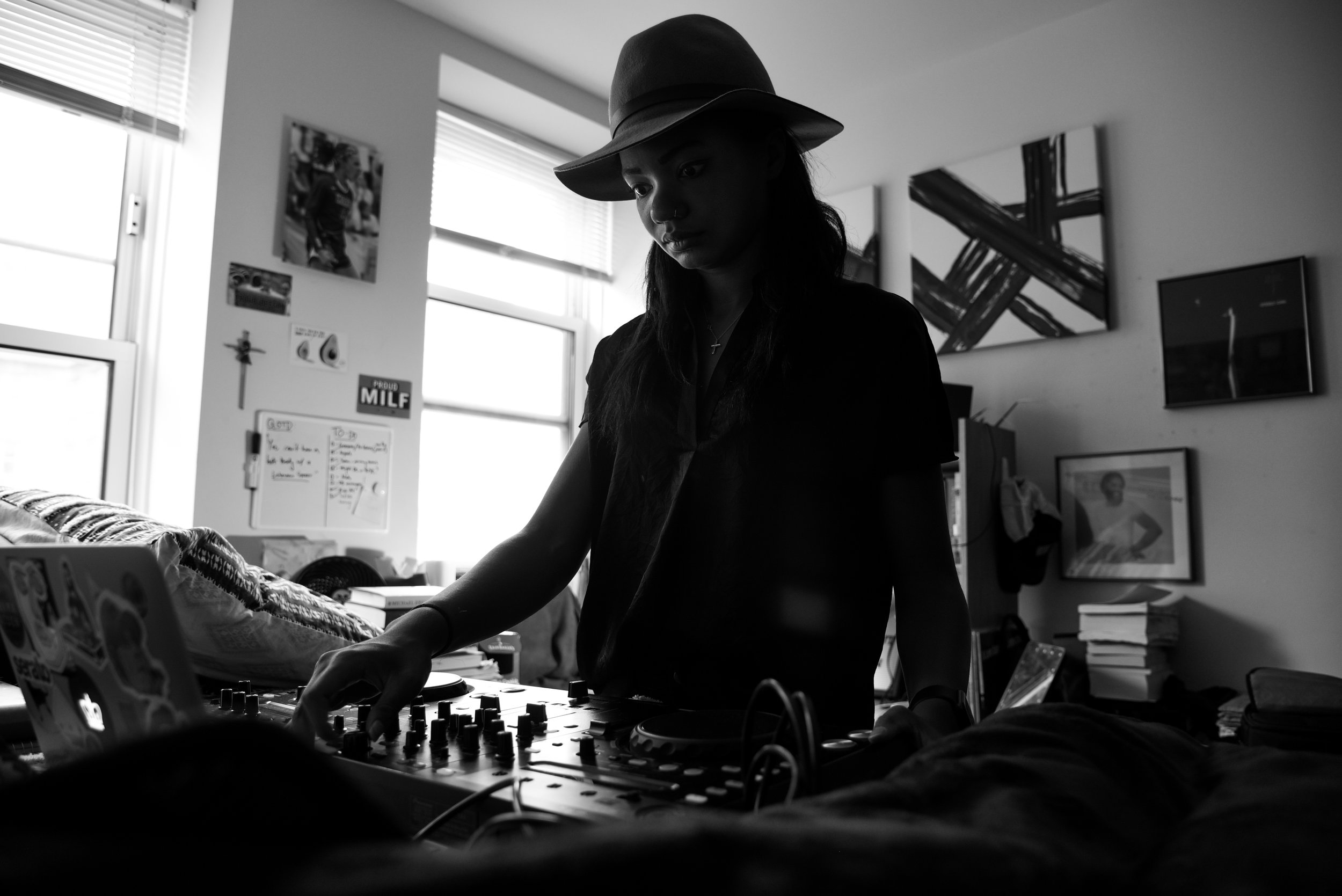
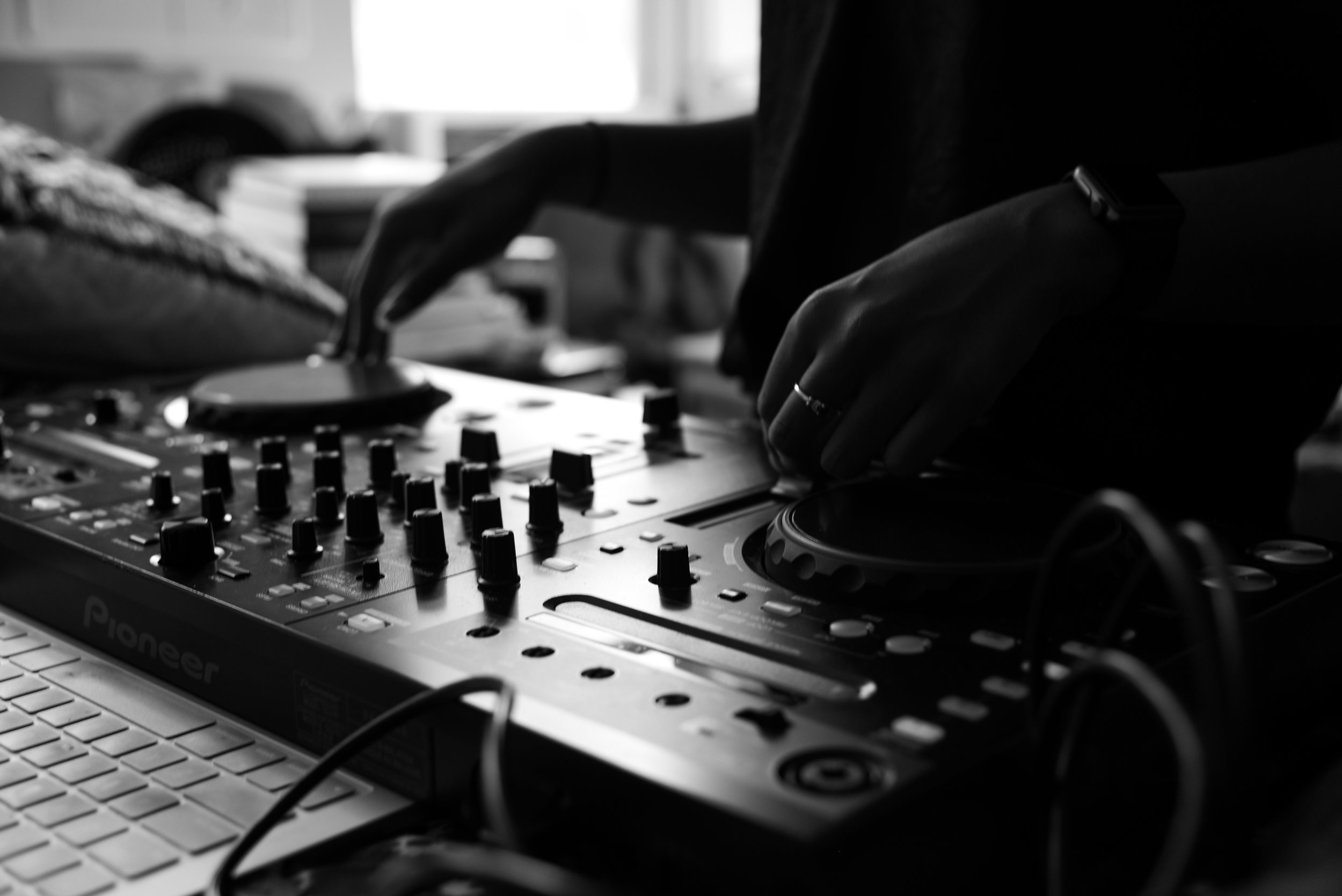

Photography by Natalie Tischler
Interview by Yosan Alemu
Before we start, can you briefly introduce yourself?
Right. My name is Aja Isabel. I’m a sophomore in Columbia College, majoring in history with a concentration in human rights. My DJ name is 7_100, because that was the license plate of a car we’ve had in the family for years—and I listened to a lot of music in that car—my baby. I’d describe myself as a DJ, a radio host, and an occasional producer. I’m very self-critical and a huge audiophile, which makes producing hard as I’m always looking for perfection, but having music and being able to DJ has been vital to my happiness here at college.
How did you find out about music production and what's your history with music?
I was raised in a household that valued and appreciated music. My parents, baby boomers and children of the 70s, have vast catalogs of music that I was exposed to from nearly birth. My dad, for example, loves classic rock, but also rap, and my mom loves the Dave Matthews Band, but also R&B—pretty incongruous. They both love jazz, which I hated at first, too—as an angsty kid who despised it just because they loved it so much, and because I felt like I was exposed to jazz almost to the point of excess—but now I can’t get enough of it. As a kid, all friends were listening to things like Radio Disney and Kidz Bop. That was just not a thing in my house, at all. Looking back, I’m so grateful, because I got to hear real music from such a young age. With music production, my older brother actually got me interested in being a DJ. He got me set up with an old deck he no longer needed, and things took off from there. For years, I was always messing around on Garage Band—but eventually got pretty good on both that and a board. And now, I love mixing, as I think mixing old songs with newer ones bring certain songs back to life that may not be so mainstream anymore.
Do you think social media influences the way people consume art, especially music?
That's hard. But I think especially now, when albums are released, they sometimes lose their fullness. I feel like we don’t get the same sense of ‘entirety’ in an album because things like social media require such a high demand of production from artists, so they always feel like they need to always have music out.
Are there any life experiences or moments that have shaped you as a person and are reflected in the way you make or mix music?
Well, one moment I can think of was when I was pretty young, and at my first Steely Dan concert. I was so mesmerized by the way the group grabbed the audience’s attention and engaged with everyone in the crowd. Music isn’t just about making a tune, it’s also about interacting with people at an intimate level. When I'm deejaying, I keep that in mind. I want people to leave with an experience they’ll remember. It's not going to be a Steely Dan level of experience, but it can be somewhat close.
How does being a black woman influence your work? Are you conscious of your identity? And if so, how do you perceive identity in music and production?
It’s one thing being a female deejay, but it’s another to be both black and woman on the deejay scene. It’s like being a unicorn. I take pride in knowing that. The music world, especially music production has been dominated by white men, like Calvin Harris, Skrillex, and Martin Garrix. I can’t list off of the top my head a single female black DJ who has the same popularity or platform as these white, male DJs. That’s why Missy Elliot is such a role model for me. She’s been in this for decades, producing, mixing, and making music. She’s literally defied the odds.
How does sampling play a part in creating music, and does it help or harm the quality of music?
For my WBAR show, I recently did a West Coast rap episode where I was going through the discography of West Coast rappers. Tupac, for example, is especially known for sampling. People often think sampling is stealing music from other artists, but I think it provides a really cool opportunity to create something new, to create a different experience that gives older, often less-popular songs a second—or third—life, It’s also a really great way for artists to uplift and incorporate lesser known musicians.
Earlier, you mentioned that Missy Elliot was one of your role models. Who are your others?
I also love Pharrell; he has such a distinct sound. You can almost always tell if a song was produced by him just by listening to the first 15 seconds. I also love Kaytranada. Whether it be remixes of songs by Janet Jackson or Teedra Moses, he always manages to breathe new life back into classics. And he pays close attention to his roots when he makes music. Kaytranada is Haitian by way of Canada, and it’s really interesting to see the ways in which he combines the musical culture of both places into his work.
If you could pick one song to be your all-time favorite, which one would it be?
I would say ‘Black Cow’ by Steely Dan, because that song is everything.
